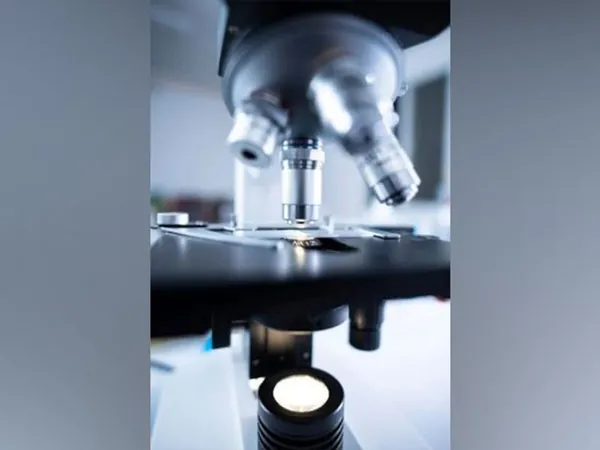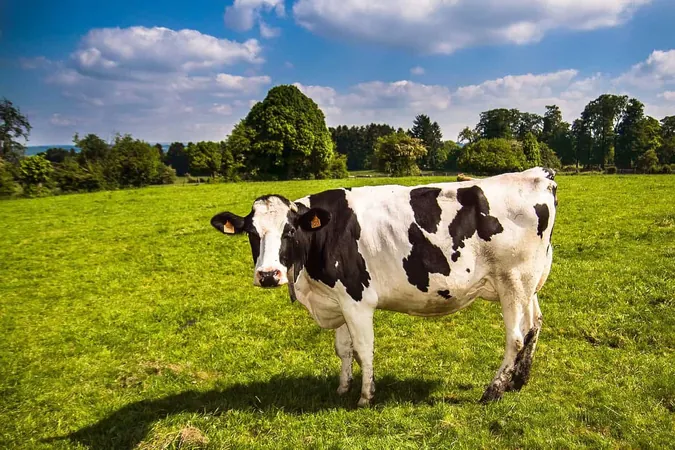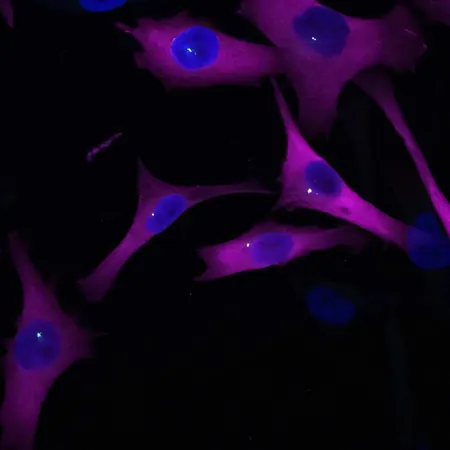
Unlocking the Secrets of Gut Bacteria with AI: A Health Revolution Awaits!
2025-07-06
Author: John Tan
Revolutionizing Our Understanding of Gut Health
Did you know your gut is home to a staggering 100 trillion bacteria? That's more than the cells in your entire body! These tiny microorganisms play a monumental role in not just digestion but also in various health issues that plague humanity. Now, researchers from the University of Tokyo are harnessing the power of artificial intelligence to reveal how these gut bacteria interact with each other and with our body’s chemistry.
The Power of AI in Biology
For the first time, scientists have deployed a cutting-edge AI technique known as a Bayesian neural network to analyze complex datasets on gut bacteria. Traditional methods struggled to uncover the intricate relationships between bacteria and the metabolites they produce—chemical messengers that affect everything from our immune system to our mood. But with this revolutionary approach, researchers hope to unlock new insights that could lead to tailored healthcare solutions.
Metabolites: The Hidden Key to Health
Gut bacteria create a myriad of metabolites, which play critical roles throughout our body. Researchers are just beginning to unveil the specific bacteria that contribute to the production of beneficial metabolites, which could lead to groundbreaking personalized treatments. Imagine therapies designed to either cultivate beneficial bacteria or modify metabolites to combat diseases!
A Game-Changer for Disease Understanding
According to Project Researcher Tung Dang, understanding these bacteria-chemical relationships is a game changer. Their new system, VBayesMM, efficiently filters through vast datasets to identify which bacteria significantly impact metabolite production—it’s like having a treasure map of biological relationships! During trials on conditions like sleep disorders, obesity, and cancer, VBayesMM outshone traditional methods, revealing specific bacterial families linked to essential biological processes.
Addressing Challenges in Health Data Analysis
While VBayesMM opens doors to understanding gut microbiomes, it does face challenges. The computational demands are high, and the system currently relies on possessing extensive data about bacteria, often lacking information on the metabolites. Moreover, it operates under the assumption that microbes act independently, although in reality, their interactions are incredibly complex.
The Future: Transforming Research into Real-World Treatments
Looking ahead, the team aims to enrich VBayesMM with more comprehensive datasets and address the complexity of bacterial interactions. They envision a transformative future where precise bacterial targets can lead to tailored treatments and dietary recommendations that genuinely help patients. This is just the beginning of a thrilling journey that blends artificial intelligence with biological research, paving the way for a healthier tomorrow!






 Brasil (PT)
Brasil (PT)
 Canada (EN)
Canada (EN)
 Chile (ES)
Chile (ES)
 Česko (CS)
Česko (CS)
 대한민국 (KO)
대한민국 (KO)
 España (ES)
España (ES)
 France (FR)
France (FR)
 Hong Kong (EN)
Hong Kong (EN)
 Italia (IT)
Italia (IT)
 日本 (JA)
日本 (JA)
 Magyarország (HU)
Magyarország (HU)
 Norge (NO)
Norge (NO)
 Polska (PL)
Polska (PL)
 Schweiz (DE)
Schweiz (DE)
 Singapore (EN)
Singapore (EN)
 Sverige (SV)
Sverige (SV)
 Suomi (FI)
Suomi (FI)
 Türkiye (TR)
Türkiye (TR)
 الإمارات العربية المتحدة (AR)
الإمارات العربية المتحدة (AR)